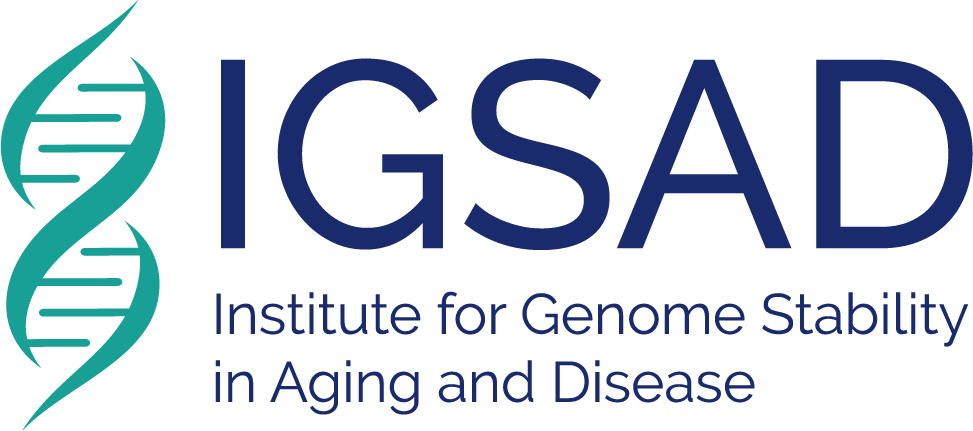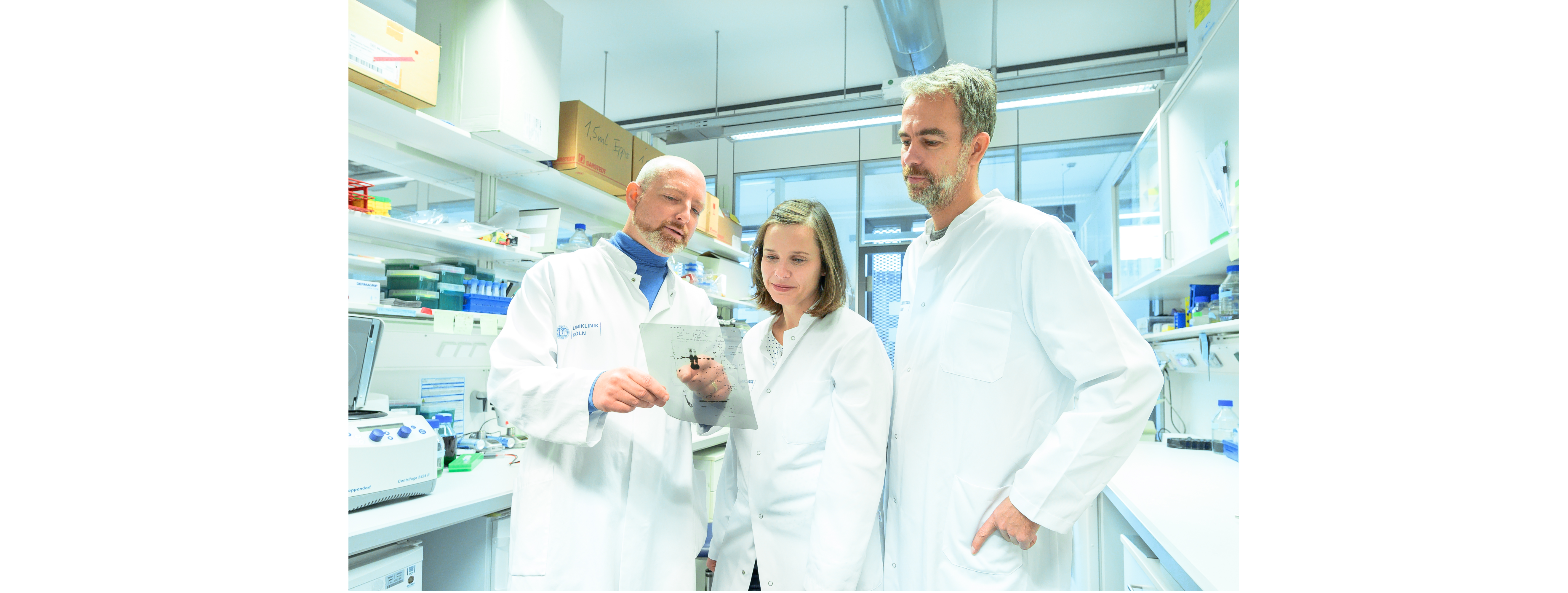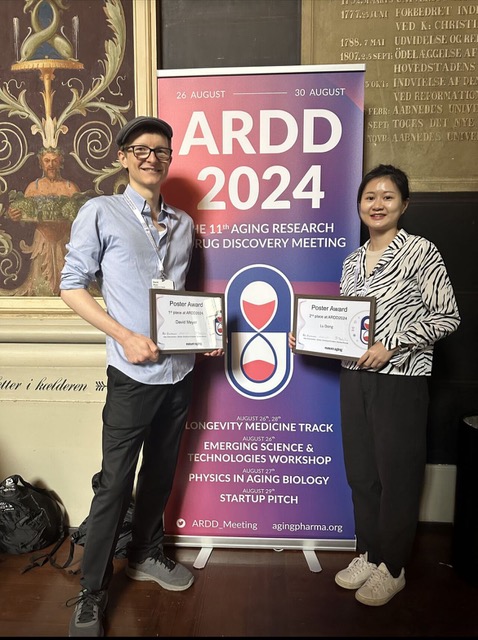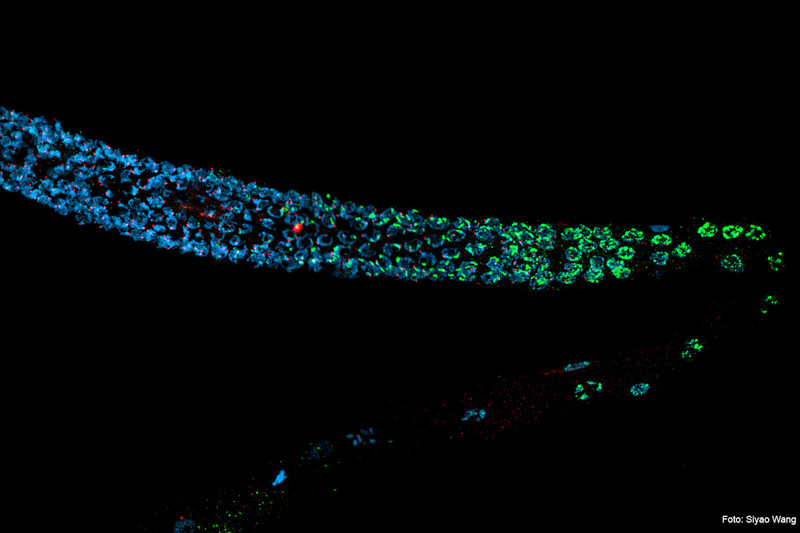The Institute
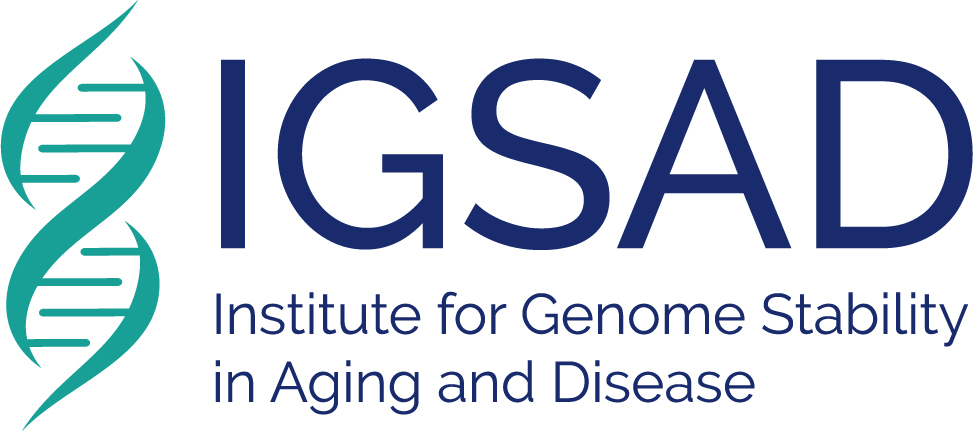 The Institute for Genome Stability in Aging and Disease (IGSAD) is devoted to investigating the molecular mechanism of aging and chronic diseases. Aging is strongly correlated with a host of human pathologies, most prominently with cancer, inflammatory, cardiovascular and neurodegenerative diseases such as Alzheimer's and Parkinson's, as well as general functional decline. It is, therefore, of outstanding interest to further our understanding of the mechanisms underlying human aging and disease. DNA damage has been shown to play a central role both in cancer and, more recently, in aging. DNA damage can lead to genetic aberrations such as mutations that fuel cancer development. DNA damage can also interfere with transcription and replication leading to cell death, cellular senescence, and decline of cellular functionality. Consequently, stem cell compartments are deprived and differentiated cells degenerate. To protect from these outcomes, eukaryotes have evolved the DNA damage response, a complex network of signaling and repair mechanisms. The DNA damage response spans across all cellular compartments ranging from epigenetic alterations to the disruption of metabolism and proteostasis, mitochondrial dysfunction and inflammation. The IGSAD aims to unravel the molecular mechanism through which DNA damage promotes the aging process, causes cancer and age-related diseases. IGSAD scientists investigate DNA repair mechanisms that maintain the stability of the genome and how genome structure is maintained. We are using the genetic model organism Saccharomyces cerevisiae and Caenorhabditis elegans, mammalian disease models and human tissue cultures. IGSAD groups are associated with the CECAD excellence cluster of aging research, the University Hospital of Cologne, the Max Planck Institute for the Biology of Aging, and the German Aerospace Center (DLR).
The Institute for Genome Stability in Aging and Disease (IGSAD) is devoted to investigating the molecular mechanism of aging and chronic diseases. Aging is strongly correlated with a host of human pathologies, most prominently with cancer, inflammatory, cardiovascular and neurodegenerative diseases such as Alzheimer's and Parkinson's, as well as general functional decline. It is, therefore, of outstanding interest to further our understanding of the mechanisms underlying human aging and disease. DNA damage has been shown to play a central role both in cancer and, more recently, in aging. DNA damage can lead to genetic aberrations such as mutations that fuel cancer development. DNA damage can also interfere with transcription and replication leading to cell death, cellular senescence, and decline of cellular functionality. Consequently, stem cell compartments are deprived and differentiated cells degenerate. To protect from these outcomes, eukaryotes have evolved the DNA damage response, a complex network of signaling and repair mechanisms. The DNA damage response spans across all cellular compartments ranging from epigenetic alterations to the disruption of metabolism and proteostasis, mitochondrial dysfunction and inflammation. The IGSAD aims to unravel the molecular mechanism through which DNA damage promotes the aging process, causes cancer and age-related diseases. IGSAD scientists investigate DNA repair mechanisms that maintain the stability of the genome and how genome structure is maintained. We are using the genetic model organism Saccharomyces cerevisiae and Caenorhabditis elegans, mammalian disease models and human tissue cultures. IGSAD groups are associated with the CECAD excellence cluster of aging research, the University Hospital of Cologne, the Max Planck Institute for the Biology of Aging, and the German Aerospace Center (DLR).
